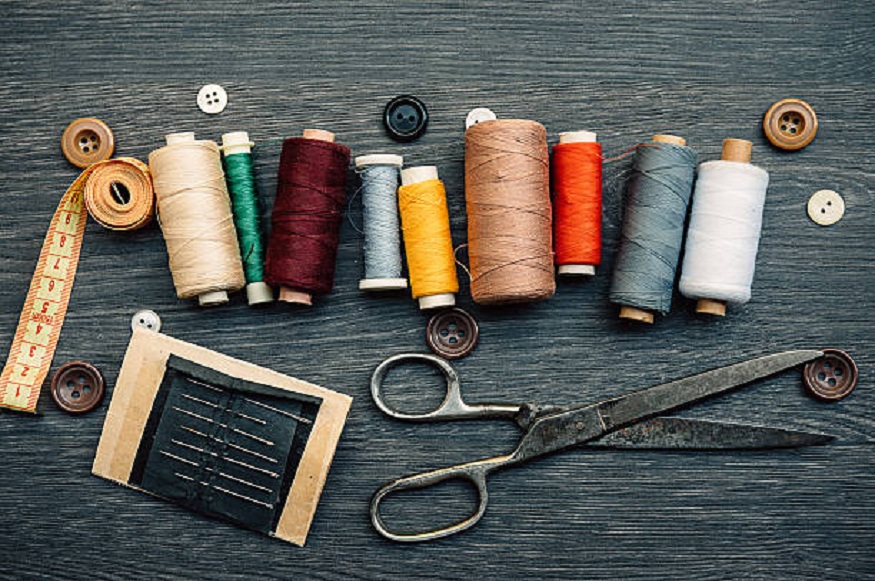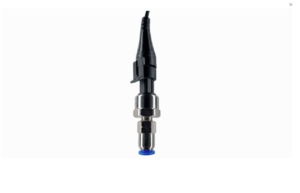How Sewing Shops Turn Quilting, Repair & Mending into a Lasting Business

Equipment in the tailor shop, thread, sweing needle and scissors, buttons and fashion design plans. swing threads in row
In a digital world dominated by fast fashion and disposable everything, there’s something quietly revolutionary happening in neighborhoods across America—especially in New Jersey. The rise of local sewing shops as hubs for quilting, repair, and mending services is not only preserving craftsmanship but also driving long-term business growth.
These shops have transitioned beyond just selling fabrics and supplies. They’re building loyal communities by offering valuable services, hands-on expertise, and niche solutions in a market increasingly craving sustainability, personalization, and authenticity. Here’s how they’re doing it.
The Shift from Retail to Service-Oriented Sewing
The modern sewing shop is no longer just a retail destination—it’s a multifunctional space where people come to learn, mend, quilt, and connect.
Traditionally, sewing shops relied heavily on walk-in sales of fabric, patterns, threads, and tools. But with the rise of online shopping, these stores have had to rethink how to stay relevant. Smart shop owners realized that offering in-house services like quilting, clothing repair, and custom alterations added a new layer of value that online retailers couldn’t replicate.
These personalized services not only bring people into the store but also create trust and recurring business. It’s no surprise that many sewing businesses in New Jersey are now thriving—not by competing with big-box retailers, but by offering something they can’t.
Quilting: A Timeless Tradition with a Modern Twist
Quilting has always had a place in American culture, but it’s enjoying a fresh resurgence among millennials, Gen Z, and retirees alike. Many people are turning to quilting not only as a hobby but as a way to make meaningful, heirloom-quality gifts or art.
Modern sewing shops are capitalizing on this trend by offering:
- Custom long-arm quilting services
- Quilt finishing or repair
- Quilt clubs and workshops
- Memory quilting from old clothes or keepsakes
By offering these niche services, a sewing shop establishes itself as a destination for creatives and hobbyists alike, while also generating a steady revenue stream from specialty work that can’t be mass-produced.
Many stores also pair these services with sales of sewing accessories in New Jersey, from rotary cutters and cutting mats to decorative threads and quilting rulers, encouraging customers to buy more than just the service.
Mending and Repairs: Sustainability Meets Sentimentality
With the rising awareness of environmental issues and the dark side of fast fashion, consumers are becoming more mindful about what they wear—and how they care for it.
Sewing shops offering garment mending and clothing repair services are tapping into this cultural shift. Whether it’s fixing a zipper, patching a beloved pair of jeans, or altering a thrifted item, these shops become essential resources for individuals looking to extend the life of their wardrobes.
Repair services often include:
- Hemming and tailoring
- Fixing ripped seams and holes
- Replacing buttons and zippers
- Restoring vintage garments
Not only are these services eco-friendly, but they also offer emotional value. Customers trust a local sewing expert with items that may carry family history, personal milestones, or sentimental meaning.
In turn, this builds customer loyalty and repeat visits, especially when paired with expert advice and the right sewing accessories New Jersey locals can take home to do simple fixes themselves.
Workshops: Building Skills and Driving Traffic
Many successful sewing shops have integrated educational offerings into their business model, hosting classes for:
- Beginner sewing and machine use
- Garment construction
- Home décor projects like curtains or cushions
- Advanced quilting and embroidery
- Visible mending and patchwork art
These classes not only generate direct revenue but also encourage ongoing purchases of fabric, tools, and supplies. Attendees often buy starter kits, sewing machines, and notions before or after class.
Plus, workshops build community. Shoppers return not just for the products or services but for the relationships they form with instructors and fellow students. Some shops even host “open sew” nights where people bring their own projects and stitch alongside others, helping to further cement customer engagement.
Upselling with Sewing Accessories in New Jersey
No service offering is complete without smart retail tie-ins.
When a customer brings in a quilt for binding or a pair of pants for hemming, it’s the perfect opportunity to suggest useful tools or items like:
- Premium needles or thread
- Fabric glue or fusible interfacing
- Seam rippers or pressing tools
- Bias tape makers or quilting rulers
This type of consultative selling transforms the sewing shop into a trusted advisor, making customers feel supported while subtly boosting the average transaction value.
In New Jersey, especially—where creativity and craftsmanship are tightly woven into local culture—sewing shops that stock unique, high-quality sewing accessories stand out as the go-to for both beginners and professionals.
Tailored Solutions: Serving Niche Markets
Another major reason sewing shops succeed through services is their ability to meet niche local needs that aren’t served by online stores or big chains.
Some examples include:
- Offering costume alterations for theater groups or schools
- Assisting wedding parties with emergency dress repairs
- Custom embroidery for local businesses or sports teams
- Adapting clothes for people with disabilities or unique body types
When a sewing shop becomes known for addressing specific challenges with skill and care, word-of-mouth marketing does the rest. These niche services also often command higher prices and fewer competitors, giving shops an edge.
Creating a Cycle of Repeat Business
Once a customer trusts a sewing shop to hem their pants or repair their grandmother’s quilt, they’re more likely to return for:
- New sewing projects
- Seasonal gift-making ideas
- Machine servicing and maintenance
- Advice on how to start quilting
- Classes and community events
This cycle of recurring visits creates a stable foundation of income, far more sustainable than one-time retail sales.
In addition, offering loyalty programs or project punch cards (e.g., every 5 repairs, get one free) keeps customers engaged and incentivized to return.
Why New Jersey Sewing Shops Are Perfectly Positioned
New Jersey has long been a state filled with artisans, small businesses, and creative communities. That spirit makes it an ideal place for sewing shops to thrive, not just as retail outlets, but as service-based community hubs.
People here are looking for:
- Sustainable options to reduce waste
- Creative ways to personalize gifts and clothing
- Local businesses that care about craftsmanship and quality
- Opportunities to learn traditional skills and connect offline
A well-run sewing shop that offers mending, quilting, and educational services fits all these desires perfectly, while standing out from online-only or big-box competitors.
Stitching Services into a Lasting Business Model
In an era when retail alone isn’t enough to keep doors open, sewing shops are proving that service is the new sales strategy. By offering quilting, mending, workshops, and expert guidance, they’re generating consistent revenue and building customer loyalty that goes beyond fabric and thread.
For shops that stock the right range of sewing accessories in New Jersey and provide valuable, personalized services, the future is bright—and beautifully stitched together.






